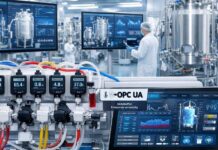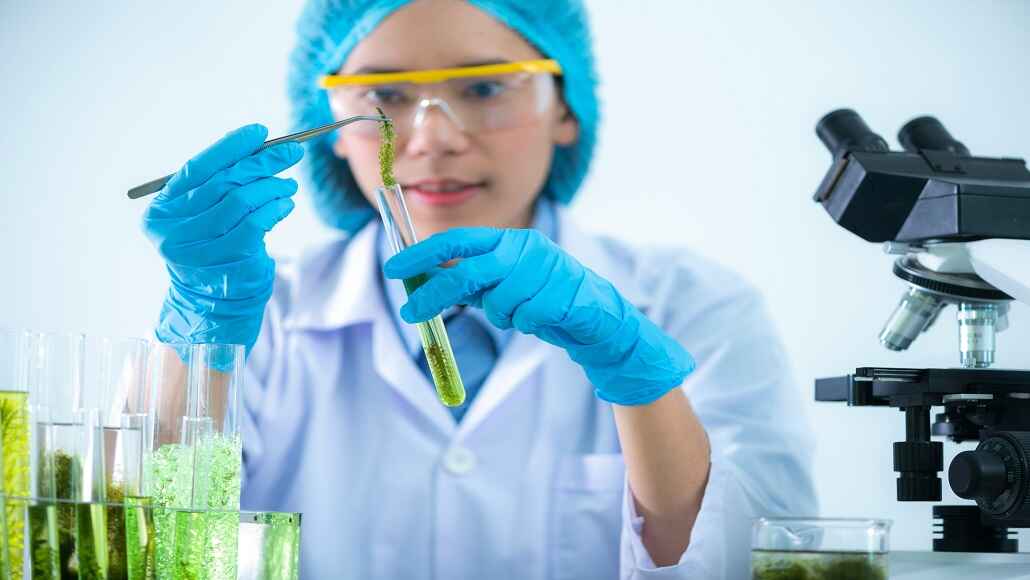How Continuous Manufacturing is Advancing Biopharma Production
The biopharmaceutical industry, known for its complexity, intricacy, and stringent regulatory requirements, is undergoing a transformation driven by technological innovation. Among the advancements reshaping the sector, continuous manufacturing stands out as a game-changing approach that is revolutionizing biopharmaceutical production. Traditionally dominated by batch manufacturing systems, biopharma production is transitioning towards continuous processes, offering a host of benefits including enhanced efficiency, improved product quality, quicker production timelines, and reduced costs.
This shift is not merely a trend but a response to the increasing demand for biologics, biosimilars, and personalized medicines. With the global biopharmaceutical market projected to reach $856 billion by 2030, continuous manufacturing is set to play a pivotal role in meeting this growing demand while maintaining the high-quality standards critical to the industry.
Understanding Continuous Manufacturing in Biopharma
In traditional batch manufacturing, production occurs in discrete steps with pauses between stages, often requiring equipment cleaning, recalibration, and material transfers. While effective, this approach is time-consuming, resource-intensive, and susceptible to variability. In contrast, continuous manufacturing involves an uninterrupted production flow, wherein raw materials are fed into the system, and finished products are simultaneously produced in real time.
This integration of production steps eliminates inefficiencies, reduces downtime, and ensures greater consistency in product quality. Continuous manufacturing has proven particularly advantageous in biopharmaceuticals, where the production of complex biologics such as monoclonal antibodies, vaccines, and cell therapies demands precision and reliability.
Driving Forces Behind Continuous Manufacturing Adoption
The growing adoption of continuous manufacturing in biopharmaceutical production is fueled by several factors. One of the primary drivers is the increasing demand for biologics, which represent the fastest-growing segment in the pharmaceutical industry. According to a 2024 report by Research and Markets, biologics account for nearly 40% of new drug approvals, underscoring their importance in modern medicine. Continuous manufacturing provides the scalability required to meet this demand without compromising quality or efficiency.
Additionally, the COVID-19 pandemic highlighted the need for rapid manufacturing capabilities to address global healthcare crises. Continuous manufacturing enables agile production, allowing biopharma companies to scale up or pivot production as needed. For instance, during the pandemic, Pfizer leveraged continuous processes to accelerate the production of its mRNA vaccine, demonstrating the flexibility and responsiveness of this approach.
Regulatory support has also played a key role in advancing continuous manufacturing. The U.S. Food and Drug Administration (FDA) and the European Medicines Agency (EMA) have encouraged the industry to adopt continuous processes, recognizing their potential to improve quality control and reduce production risks. In 2025, the FDA approved its 15th drug produced using continuous manufacturing, signaling widespread acceptance of this technology.
Enhanced Efficiency and Cost-Effectiveness
Continuous manufacturing has redefined efficiency in biopharma production. By integrating processes such as protein purification, formulation, and sterilization into a single, streamlined operation, this approach minimizes the need for intermediate storage and reduces the risk of contamination. The result is a significant reduction in production timelines. For example, a study published in 2023 found that continuous manufacturing reduced the production time for monoclonal antibodies by 30-40% compared to batch processes.
Cost savings are another compelling advantage. Continuous manufacturing optimizes resource utilization, reducing the consumption of raw materials, energy, and labor. A report by McKinsey & Company estimated that biopharma companies adopting continuous processes could achieve cost savings of up to 20-25%, translating to substantial financial benefits in an industry characterized by high production costs.
Moreover, the integration of automation and advanced analytics in continuous systems enhances process control and minimizes human error, further contributing to cost-efficiency. Real-time monitoring and feedback loops enable manufacturers to detect and address deviations immediately, ensuring consistent product quality and reducing waste.
Improving Product Quality and Consistency
Quality is paramount in biopharmaceutical production, given the potential impact of drugs and biologics on patient health. Continuous manufacturing addresses quality concerns by offering greater process control and reproducibility. Unlike batch processes, which are susceptible to variability between production runs, continuous systems ensure uniformity in product composition, potency, and purity.
An example of this is seen in the production of biosimilars, where maintaining similarity to the reference biologic is essential. Continuous processes enhance the ability to monitor critical quality attributes (CQAs) in real time, ensuring that biosimilars meet rigorous regulatory standards.
Furthermore, the application of advanced technologies such as Process Analytical Technology (PAT) in continuous systems facilitates a deeper understanding of the production process. PAT tools enable manufacturers to identify and mitigate risks proactively, enhancing the overall robustness and reliability of biopharma production.
Sustainability and Environmental Benefits
Sustainability has become a pressing concern for the biopharmaceutical industry, and continuous manufacturing offers a viable solution to reduce the environmental footprint of production. By optimizing processes and minimizing waste, continuous systems contribute to resource conservation and energy efficiency.
A 2024 analysis by the International Society for Pharmaceutical Engineering (ISPE) revealed that continuous manufacturing reduced water consumption in biologics production by 50%, significantly cutting down on one of the most resource-intensive aspects of traditional manufacturing. Additionally, by reducing waste generation and emissions, continuous processes align with the industry’s commitment to environmental stewardship.
Overcoming Challenges and Accelerating Adoption
While the benefits of continuous manufacturing are evident, its adoption is not without challenges. The transition from batch to continuous processes requires significant investment in infrastructure, training, and process development. Smaller biopharma companies may face resource constraints, limiting their ability to implement this technology at scale.
Moreover, the complexity of biologics production poses technical challenges in integrating continuous systems. The development of modular platforms and single-use bioreactors has addressed some of these issues, enabling greater flexibility and scalability. Nonetheless, ongoing innovation and collaboration within the industry are essential to overcoming these hurdles.
Regulatory alignment is another critical factor. While agencies such as the FDA and EMA have expressed support for continuous manufacturing, harmonizing global regulatory standards remains a work in progress. Clarity and consistency in regulatory guidelines will be pivotal in fostering broader adoption of this transformative approach.
The Future of Biopharma Production
Continuous manufacturing represents the future of biopharma production, offering a transformative solution to the industry’s most pressing challenges. As demand for biologics, biosimilars, and personalized medicines continues to grow, the scalability, efficiency, and quality assurance provided by continuous processes will become indispensable.
Looking ahead, advancements in digitalization, automation, and artificial intelligence (AI) are expected to further enhance the capabilities of continuous systems. Digital twins, predictive analytics, and machine learning algorithms will enable even greater precision and adaptability, unlocking new possibilities for biopharma production.
Moreover, the integration of continuous manufacturing with emerging technologies such as gene editing and cell therapy is poised to drive innovation in the development of next-generation therapeutics. By combining the power of continuous processes with cutting-edge scientific advances, the biopharmaceutical industry is well-positioned to address unmet medical needs and improve patient outcomes on a global scale.
Conclusion
Continuous manufacturing is not just a technological advancement; it is a paradigm shift that is redefining the biopharmaceutical industry. By enhancing efficiency, improving product quality, reducing costs, and promoting sustainability, this approach addresses the complex demands of modern biopharma production. As the industry continues to embrace this transformative technology, continuous manufacturing will play a central role in shaping the future of healthcare, delivering innovative therapies to patients faster, more efficiently, and at a lower cost. In the dynamic and ever-evolving landscape of biopharmaceuticals, the adoption of continuous manufacturing is not just an option—it is an imperative for progress.

























